Can Dogs Eat Miso Soup?
No, dogs should not eat miso soup. Miso soup often contains high sodium levels and ingredients like onions and garlic, which are toxic to dogs. These can cause health issues such as sodium toxicity and anaemia. It is important to keep your dog’s diet safe and suitable for its specific nutritional needs.
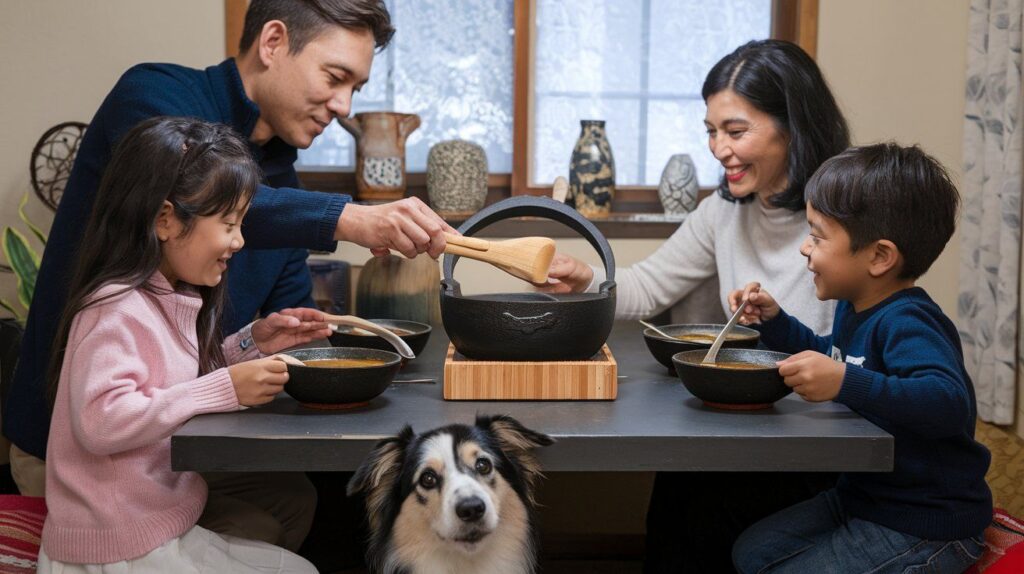
Introduction
Miso soup, a beloved staple in Japanese cuisine, is known for its comforting warmth and savory umami flavor. But if you’re a dog owner, you might wonder: can dogs eat miso soup? This question arises especially when our furry friends seem interested in our meals. Miso soup’s main ingredients—miso paste and dashi—along with various additions like tofu and seaweed make it a nutrient-rich dish for humans.
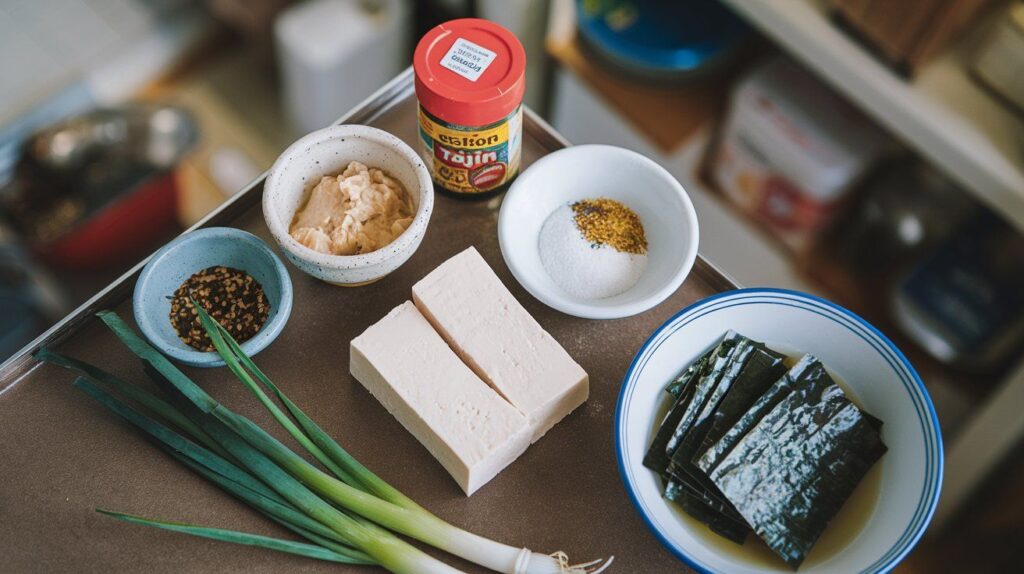
However, the suitability of miso soup for dogs is not as straightforward. This article is about whether miso soup is safe for dogs, highlights potential risks, and discusses how to modify this popular dish to make it dog-friendly.
What is Miso Soup?
Miso soup is a traditional Japanese dish that is popular in Japan and globally. At its core, the soup consists of two fundamental ingredients: miso paste and dashi. Miso paste is made from fermented soybeans, salt, and often a grain like rice or barley, imparting a range of flavors from sweet to savory. Dashi, the broth, is typically made from kombu (dried kelp) and katsuobushi (dried bonito flakes), which contribute a rich umami taste.
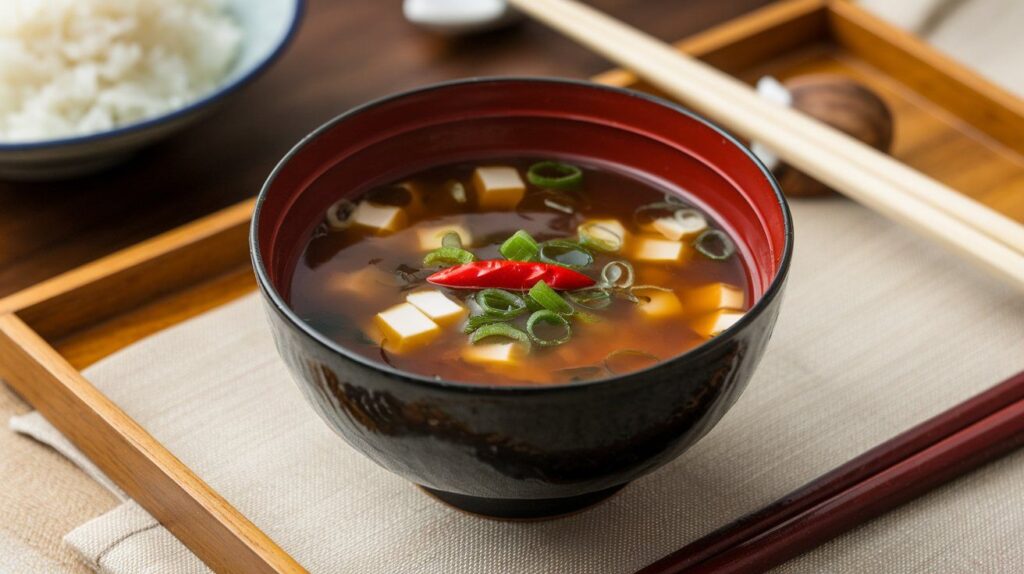
Thus, while miso soup can be a nourishing meal for humans, its traditional composition might not be suitable for canine consumption without significant modifications.
Risks of Feeding Miso Soup to Dogs
Feeding miso soup to dogs carries several risks that pet owners should know. The primary concern is the high sodium content typical of miso soup. Dogs have a lower tolerance for salt than humans, and excessive sodium intake can lead to dehydration, electrolyte imbalances, and in severe cases, salt toxicity. Symptoms of sodium poisoning in dogs include excessive thirst, urination, lethargy, and even neurological problems in extreme cases.
Onion, Garlic and Leeks
Moreover, common ingredients in miso soup, such as onions, garlic, and leeks, are part of the allium family, which is toxic to dogs. These ingredients contain compounds called thiosulfates and disulfides, which can cause oxidative damage to red blood cells, leading to anemia. The signs of allium poisoning in dogs might not appear immediately but can include vomiting, diarrhea, and rapid breathing.
Soy
Another ingredient of concern in miso soup is soy, which forms the base of miso paste. Some dogs may have soy allergies, manifesting as skin irritations or gastrointestinal disturbances. Additionally, many recipes for miso soup include other potentially harmful ingredients, such as mushrooms or certain spices that can also be toxic to dogs.
Spices
Among these spices, one should be cautious with Tajín, a popular seasoning blend made from mild chili peppers, lime, and sea salt. While the chili and lime components are generally not harmful in moderation, the salt content in Tajín could contribute to the same risks associated with the high sodium levels found in miso soup.
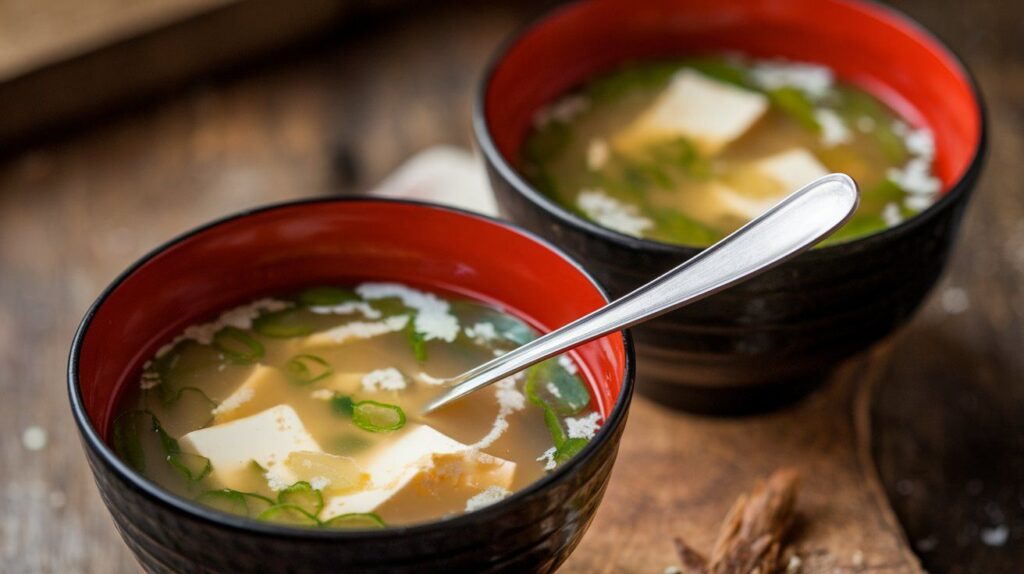
Dog-Safe Modifications to Miso Soup
Modifications are necessary to safely share miso soup with your canine companion to make it suitable and safe for consumption. The first step is eliminating all toxic ingredients in traditional miso soup recipes. Avoid using onions, garlic, leeks, and spices that could harm your dog. These ingredients are known to cause gastrointestinal upset and more severe health issues in dogs.
When preparing dog-safe miso soup, start with a homemade broth using dog-friendly ingredients. You can use a basic vegetable broth made from carrots and celery, avoiding any seasoning with salt or soy sauce. For the miso component, opt for a low-sodium miso paste to significantly reduce the overall salt content of the soup, which is crucial for your dog’s health.
Additionally, consider adding ingredients beneficial to dogs, such as small pieces of cooked chicken or turkey for protein. Vegetables like chopped carrots or spinach can be included to provide fiber and essential nutrients. Always ensure that these additions are cooked without any harmful additives.
By customizing the soup this way, you can create a version of miso soup that allows your pet to enjoy the flavors safely and without health risks. However, despite these modifications, miso soup should only be offered in small, occasional amounts as a treat, not as a regular part of your dog’s diet.
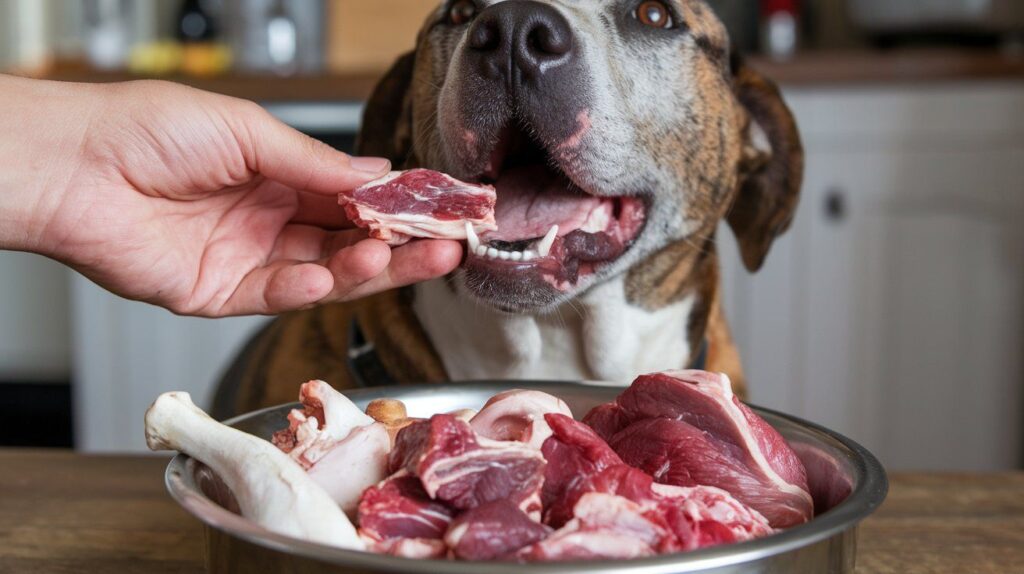
Healthier Alternatives to Miso Soup
While miso soup can be adapted to be safer for dogs, inherently healthier and simpler alternatives provide nutritional benefits without the associated risks. One excellent option is bone broth, which is highly recommended for dogs due to its rich vitamins, minerals, and collagen content. Bone broth supports joint health, digestion, and the immune system, making it a wholesome treat for dogs of all ages.
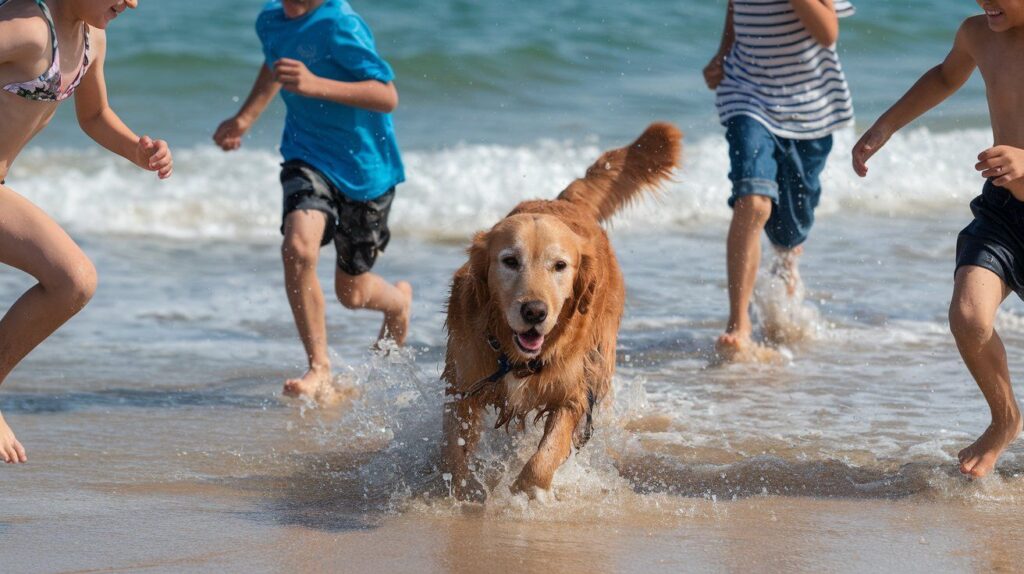
Another safe and nutritious alternative is a homemade vegetable broth. This can be prepared by boiling dog-safe vegetables such as carrots, celery, and green beans. This broth provides hydration and nutrients without the high sodium content in miso soup. It’s crucial to ensure that no onions, garlic, or excessive salts are added to the broth.
For dogs that enjoy a bit of variety, adding plain, cooked pieces of chicken or turkey to the vegetable broth can increase its protein content, making it a more satisfying and hearty treat. Such additions should always be prepared without any harmful seasonings or oils.
These alternatives not only ensure that your dog is safe but also contribute positively to their overall health and well-being, aligning better with canine dietary needs than traditional miso soup.
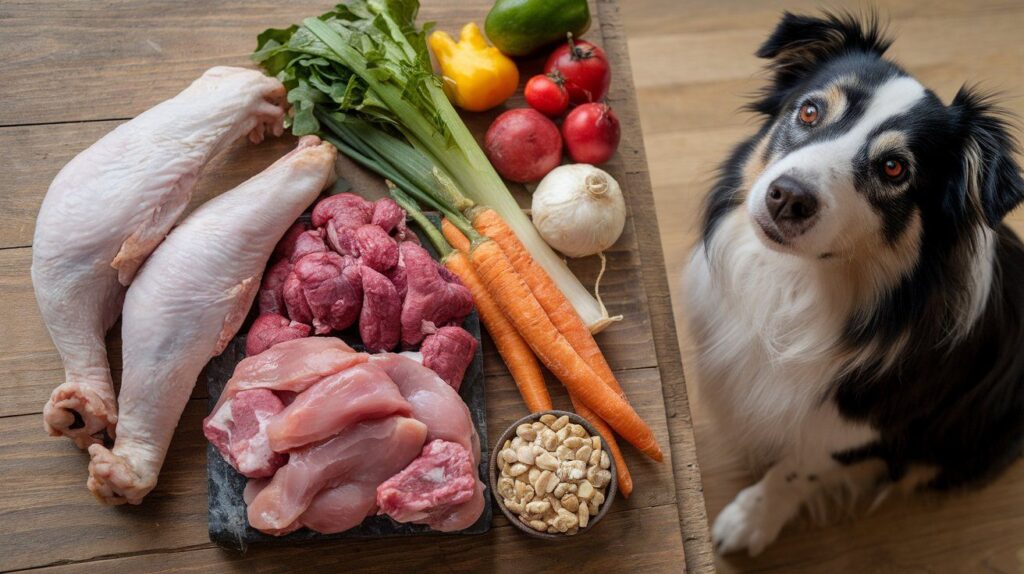
FAQ Section
What soups are harmful to dogs?
Many soups contain ingredients unsuitable for dogs, particularly those high in sodium or allium vegetables like onions and garlic, which are toxic to dogs. Cream-based soups can also be problematic due to their high fat content, which can cause pancreatitis in dogs. Always check the ingredients list before considering soup as a treat for your dog.
Effects of sodium on dogs?
High sodium levels can be dangerous for dogs, leading to conditions like dehydration, electrolyte imbalances, and in severe cases, salt toxicity. Symptoms of excessive sodium intake include increased thirst and urination, lethargy, vomiting, and diarrhea. In extreme cases, it can result in neurological issues such as tremors, seizures, and even death.
Alternative healthy treats for dogs?
Several safe and healthy alternatives to commercial treats and potentially unsafe human foods exist. Options include carrots, apples (without seeds), and cooked lean meats like chicken or turkey without added spices or sauces. These provide essential nutrients without the risks associated with processed treats and human foods not designed for canine consumption.
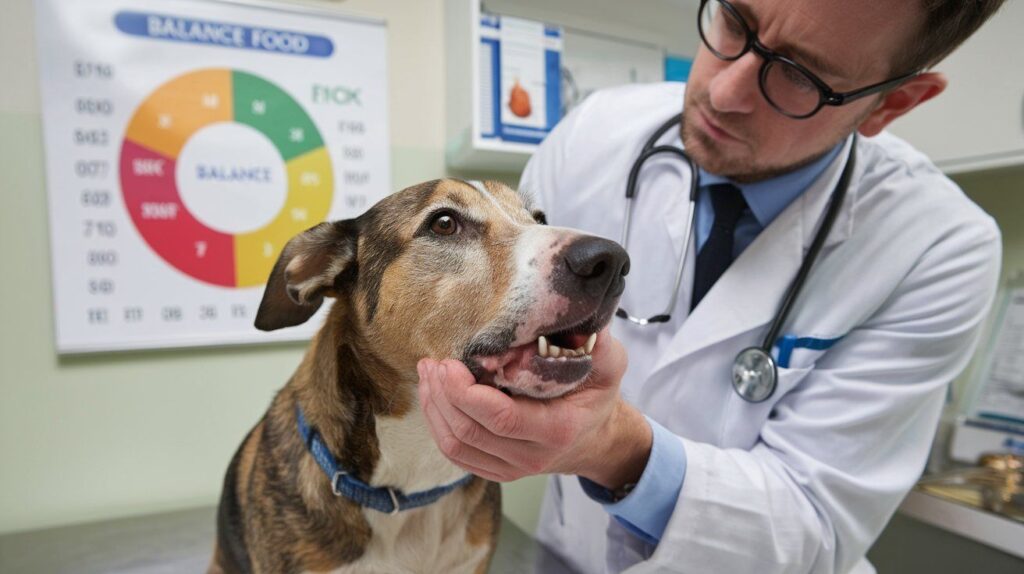
Conclusion
In conclusion, while miso soup is a nutritious option for humans, it poses several risks to dogs due to its high sodium content and potentially toxic ingredients. If you’re considering sharing any human food with your dog, including modified miso soup, it’s crucial to consult with your veterinarian first. They can provide guidance based on your dog’s specific health needs and dietary restrictions.
While discussing alternative dog-safe treats, it’s worth noting that certain raw components like chicken bones, beef hearts, and chicken necks can be beneficial, providing essential nutrients and dental health benefits. However, these must be prepared correctly to avoid hazards such as choking or internal injuries. Similarly, beef fat in moderation can offer a rich energy source, and chicken feet can help clean teeth and provide a good source of collagen.
Remember, the safest route is to stick to foods and treats specifically formulated for dogs, ensuring they receive all the nutrients they need without any risks. Always ensure that any new dietary additions, including raw meats and specific animal parts, are approved by your vet to suit your pet’s dietary needs and health status.
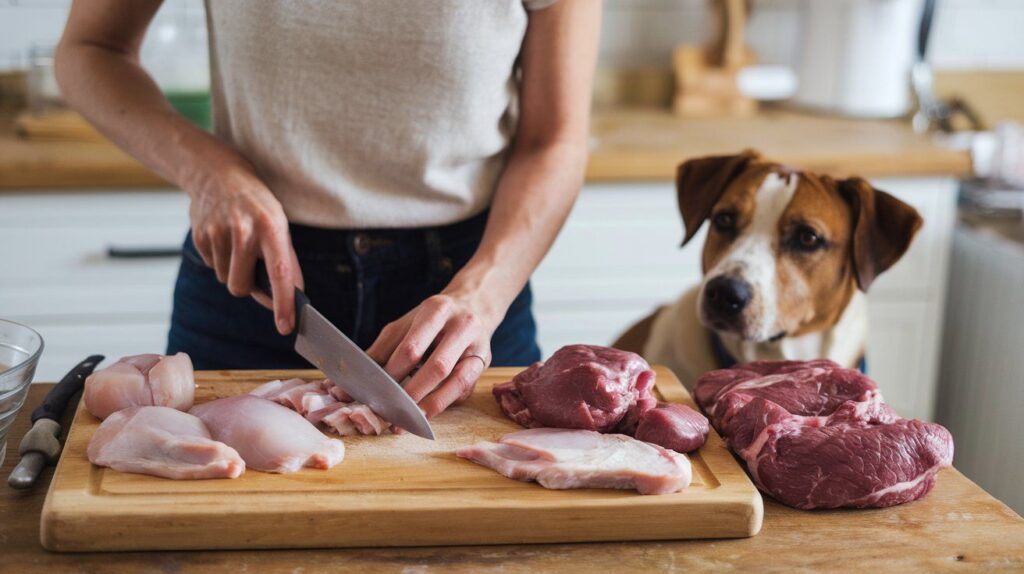
Call to Action
Please consult your veterinarian for more detailed advice tailored to your dog’s unique dietary needs. They can help you navigate the complexities of your pet’s nutrition safely and effectively, ensuring your furry friend’s healthy and happy life.





